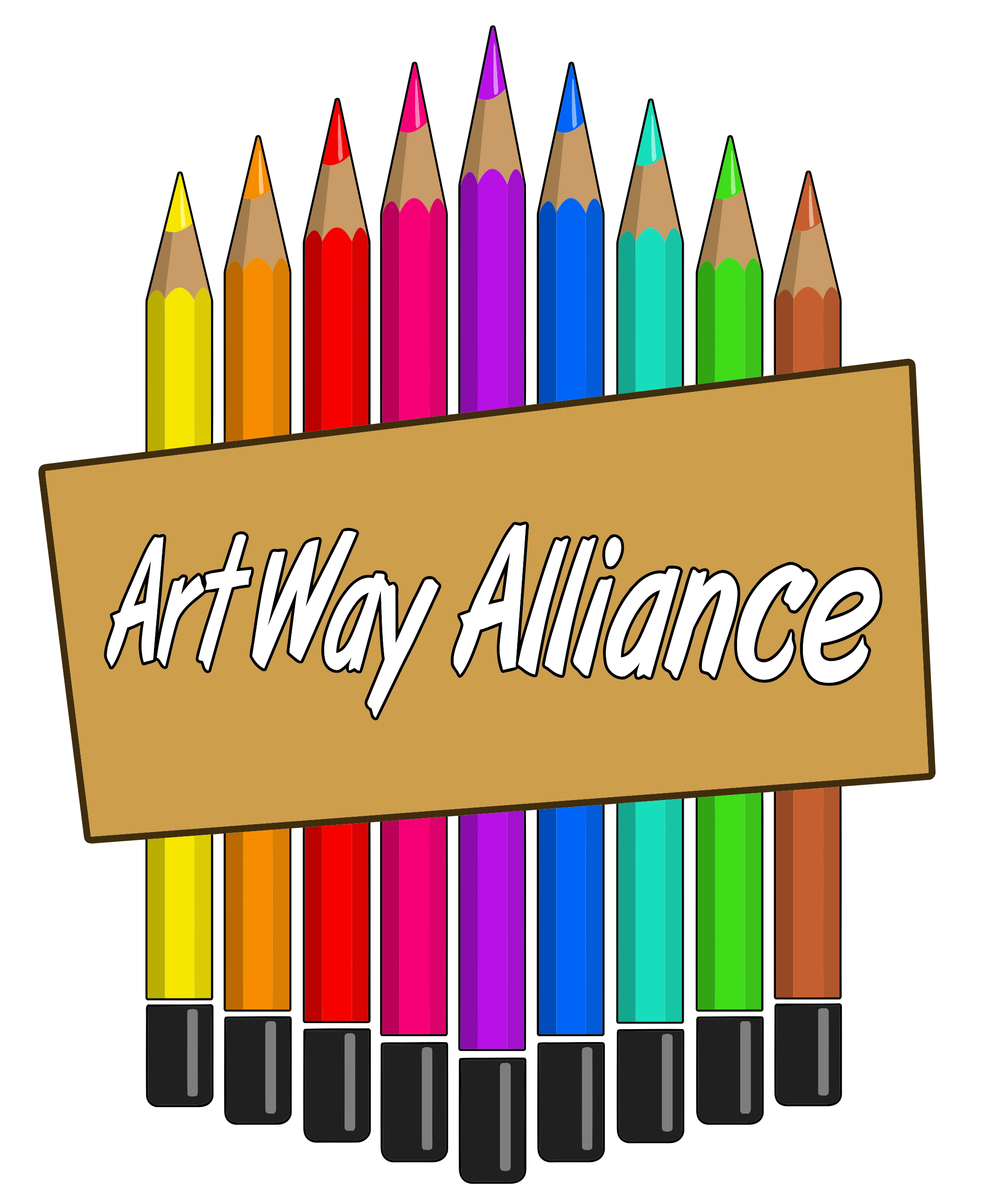Artists Discuss... Life as a Black Artist.
For Black History Month this year, Art Way Alliance spoke with two African American artists about the difficulties and rewards of being a black artist. Their answers were both insightful, and in some cases surprising. Read below.
Britany Marriott's art and cosplay has led her to meet awesome people and do amazing things.
Britany Marriott is a cosplayer, painter, writer, and artist. She also has a YouTube channel that instructs on the art of cosplaying. For more information on her work, visit her Facebook, and Instagram.
AWA: What got you into art, and what inspires you now?
Britany: My mother would draw large landscapes and have me fill in the people. I was utterly awful at drawing at the time, but I didn’t care. It was more for the time I spent drawing with my Mom. After a while she got me my first easel and helped me to begin experimenting with other mediums such as paints and charcoals.
AWA: Do you feel there is a diverse range of black artists?
Britany: I do, but it’s such a trial to find them. I always wish there were more artists in the world just in general, but I feel you have to work extra hard to find more black artists out there.
AWA: How does your culture influence your work?
Britany: Being half-Jamaican, I grew up in a different lifestyle many of my friends did, even though it was still filled with both fun and love. I pull a lot from not only my background, but the people in my life in general. Sometimes it’s a phrase that my father says to me. Maybe it’s something my sisters or my brother did. I always try to make sure there is a ton of fun and love in my drawings because that’s all I know.
AWA: What do you feel are the difficulties of being a black artist?
Britany: I believe it’s one of those [darned] if you do, [darned] if you don’t. I’ve noticed a lot of black people will avoid my table and [not] see what I have in store, but I’ll hear on the internet “well if you don’t like the way characters are portrayed, make them yourself”. It’s already a tough business to get into, and people begin to make up their own judgments about your work before they actually take a look at them.
AWA: What are the rewards?
Britany: I love it when people see my work and become mesmerized by it. They begin to ask me questions about it, but never look at me once because they’re looking at all the details I put into my work. That and when someone comes up to my table, yelling about how they love the fandom I drew. Big Bad Beetleborgs is still my number one fan piece.
Keir Lyles instructs his students on how to create a comic book during AWA's inaugural class.
Keir Lyles is a freelance/indy artist based in the DMV area, and is the founder of Apocrypha Comics Studio, home of the Repellers and Fallen Angels. He is a regular teacher for Art Way Alliance. You can also follow him on Twitter.
AWA: What got you into art and what inspires you now?
Keir: I got into art because it is a very calming influence on my life. I may get stressed when meeting deadlines, but when I'm engrossed in the actual work, I feel at peace. My family continues to inspire me. My wife is very supportive and keeps me focused and my son gets to see that if you work hard and remain dedicated you can have success in something you care about.
AWA: Do you feel there is a diverse range of black artists?
Keir: I've been fortunate to meet and work with a number of black artists. The incredible variety of how these artists express themselves is overwhelming. Within the black artist community there is an amazing amount of diversity and influence.
AWA: How does your culture influence your work?
Keir: I grew up going to school and hanging out with people from a variety of cultures. I try to reflect this in my work and characters.
AWA: What do you feel are the difficulties of being a black artist?
Keir: I haven't encountered too many difficulties being a black artist. Being a freelance artist is difficult all by itself and I've discovered that a key thing is to network. Any chance you have to interact with someone in the business, take it. Focus on perfecting and marketing your craft. Among other artists, your professionalism, talent and personality is very important.
AWA: What are the rewards?
Keir: I find it rewarding to show young black artists that there are black artists earning a living from their art. It is important to have the opportunity to see people who look like you succeeding in a difficult field such as comics.
We can't agree more with Keir! What do you think? Are you an artist? What has your experience been incorporating your culture into your work?


